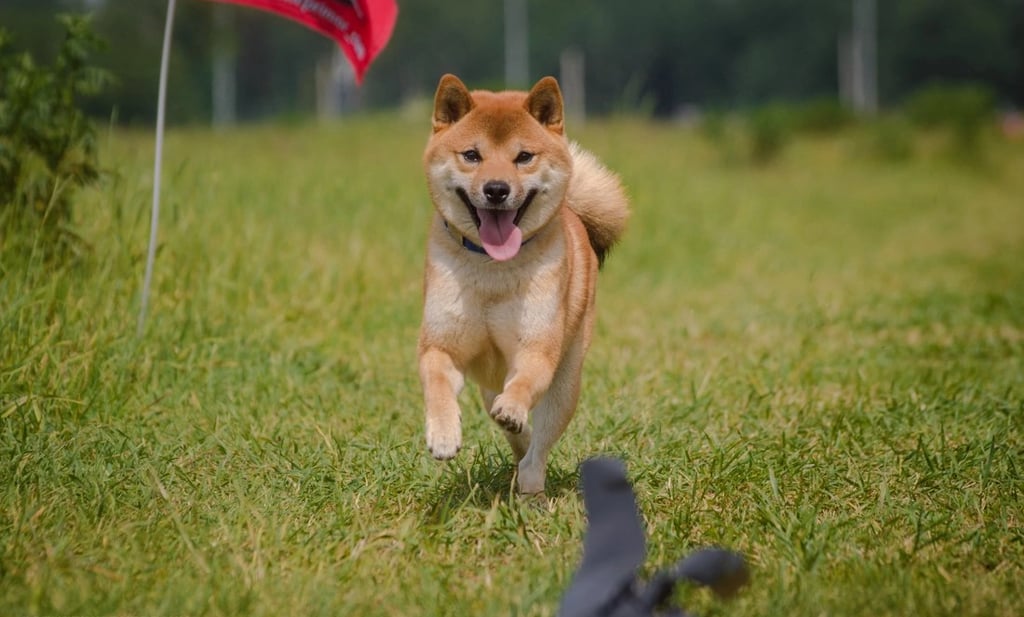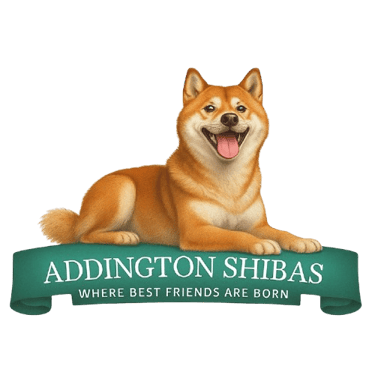Now Available: 3 Puppies from Our Current Litter! | Plus, 2 Upcoming Litters on the Way — Reserve Early!
Training & Behavior Tips for Shiba Inu Puppies | Addington Shibas
Discover expert Shiba Inu training and behavior tips. Learn how to train a Shiba Inu puppy, address common challenges, and raise a well-mannered companion.Blog post description.
SHIBA INU
Addington Shibas
8/23/20253 min read


Introduction
Bringing home a Shiba Inu puppy is an exciting milestone. Known for their intelligence, independence, and spirited personality, Shibas can be both delightful and challenging to train. At Addington Shibas, we want every new Shiba parent to feel confident, prepared, and supported.
This guide covers Shiba Inu training tips, behavior insights, and actionable strategies for raising a well-adjusted companion. Whether you’re searching for how to train a Shiba Inu puppy, Shiba Inu grooming tips, or Shiba Inu health concerns, this post is designed to help.
Understanding Shiba Inu Behavior
Before you start training, it’s important to understand the unique traits of the Shiba Inu breed:
Independent nature – Shibas are known for being strong-willed and sometimes aloof. Training requires consistency and patience.
High intelligence – They learn quickly but may also test boundaries.
Clean habits – Shibas are naturally clean dogs, often compared to cats in their grooming habits.
Strong prey drive – They may chase squirrels, rabbits, or even birds if off-leash.
Expressive personalities – From the famous “Shiba scream” to playful antics, they’re full of character.
Understanding these behaviors sets the stage for positive training.
How to Train a Shiba Inu Puppy
1. Start with Early Socialization
Exposing your puppy to different sights, sounds, people, and animals during the first few months builds confidence and reduces anxiety later. Enroll in a puppy socialization class or arrange safe playdates.
2. Focus on Positive Reinforcement
Shibas respond best to reward-based training. Use small treats, praise, or toys to reinforce desired behaviors. Harsh corrections can backfire and damage trust.
3. House Training Tips
Establish a consistent schedule for feeding and bathroom breaks.
Take your puppy outside immediately after waking, playing, or eating.
Reward successful potty trips with excitement and treats.
4. Crate Training for Safety & Comfort
A crate can become your Shiba Inu’s safe space. It also helps with potty training and prevents destructive behavior when you’re away. Make the crate cozy with a blanket and favorite toy.
5. Leash Training & Recall
Shibas are notorious escape artists. Begin leash training early and practice recall commands in secure areas. Use a long training lead in a fenced yard to practice safely.
Common Behavior Challenges (and How to Solve Them)
Stubbornness
Shibas often want things their way. The key is patience and consistency. Keep training sessions short (5–10 minutes) and end on a positive note.
The Shiba Scream
This dramatic, high-pitched noise can surprise new owners. It usually happens when the dog is stressed, scared, or overly excited. Stay calm, redirect their attention, and avoid reinforcing the scream with too much reaction.
Resource Guarding
Some Shibas guard food, toys, or space. Practice gentle trade games where you offer a treat in exchange for a toy to teach trust and reduce guarding behavior.
Separation Anxiety
Shibas are independent, but some still struggle when left alone. Start with short departures, gradually extending the time. Leave engaging toys or puzzle feeders to keep them busy.
Grooming & Health Tips for Shiba Inu Owners
Training and behavior are tied closely to overall health and care.
Grooming Essentials
Brush weekly to manage shedding (more often during spring and fall coat blows).
Bathe only when necessary, as Shibas naturally keep themselves clean.
Trim nails regularly to prevent discomfort.
👉 For more details, check our upcoming post on Shiba Inu grooming tips.
Health Concerns to Watch For
Like all breeds, Shibas have some genetic predispositions:
Allergies – often skin-related.
Hip dysplasia – ensure proper exercise and nutrition.
Patellar luxation – monitor for limping or abnormal gait.
Dental health – brush teeth or use dental chews regularly.
Regular vet visits and preventive care are essential for long-term health.
Building a Strong Bond with Your Shiba Inu
Training isn’t just about obedience it’s about building trust and connection. Here’s how to deepen your bond:
Spend daily one-on-one time (walks, play, or cuddle time).
Use mental enrichment games (puzzle toys, scent games, or agility training).
Be patient every Shiba learns at their own pace.
Additional Resources for New Owners
At Addington Shibas, we’re here to help every step of the way. Be sure to check out:
Puppies – Learn more about our available Shiba Inu puppies.
How to Reserve – Secure your place on our waiting list.
Bringing Your Puppy Home – Prepare for your Shiba Inu’s first days with you.
Conclusion
Training a Shiba Inu takes dedication, but the rewards are immense. With consistency, patience, and love, your Shiba will grow into a loyal, intelligent, and joyful companion.
At Addington Shibas, we’re passionate about raising healthy, well-socialized puppies and helping families thrive with their new companions.
Looking for your next best friend? Explore our Puppies page today.
Address
17481 Co Rd 260 Oronogo, MO 64855, USA
Contacts
Subscribe to our newsletter
Copyright © 2025 addington Shibas. All rights reserved
